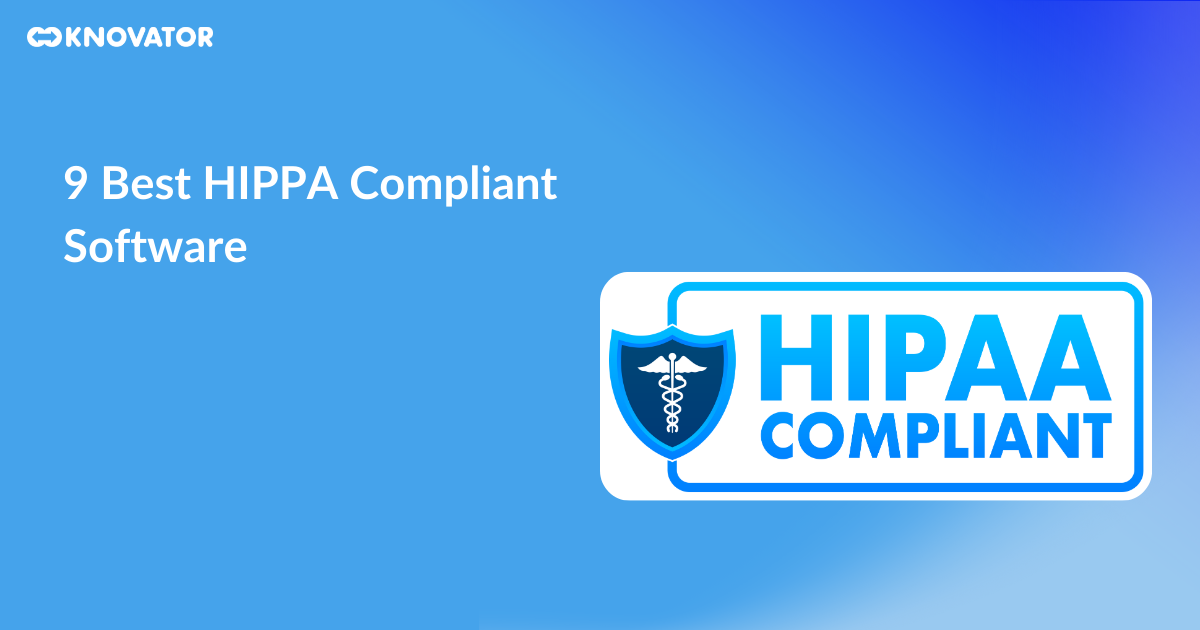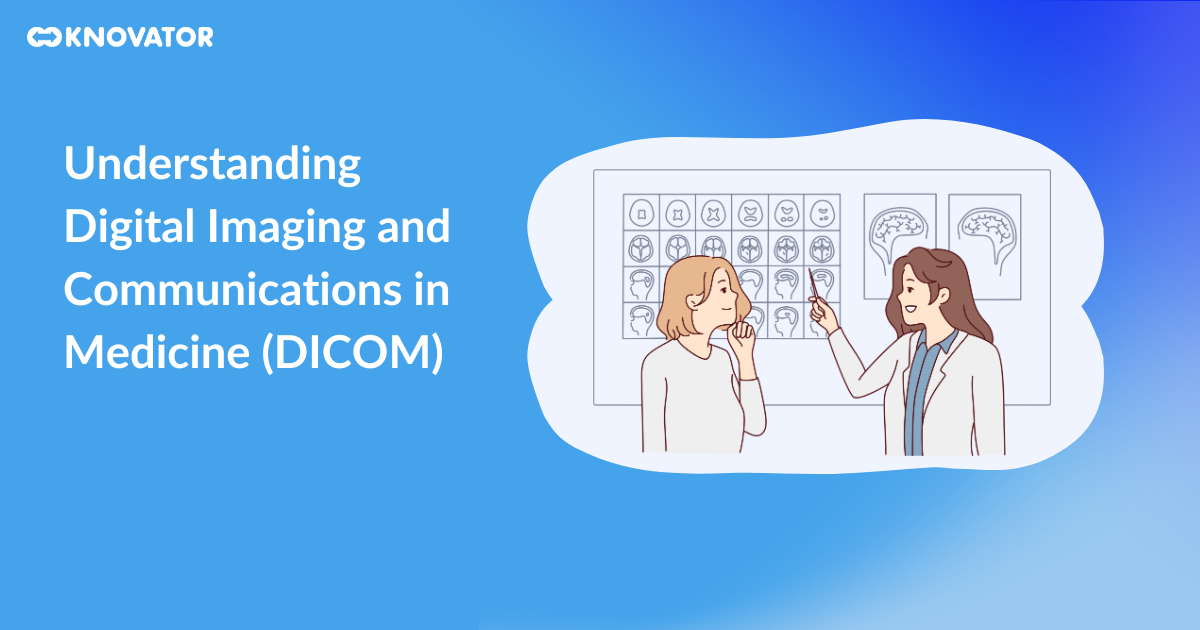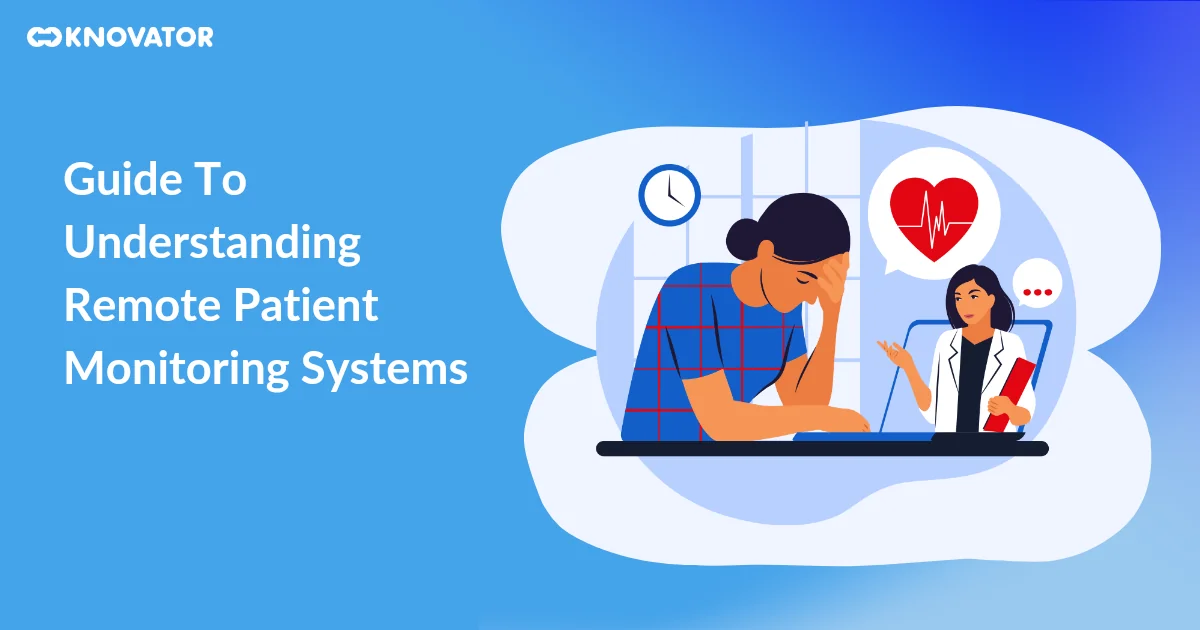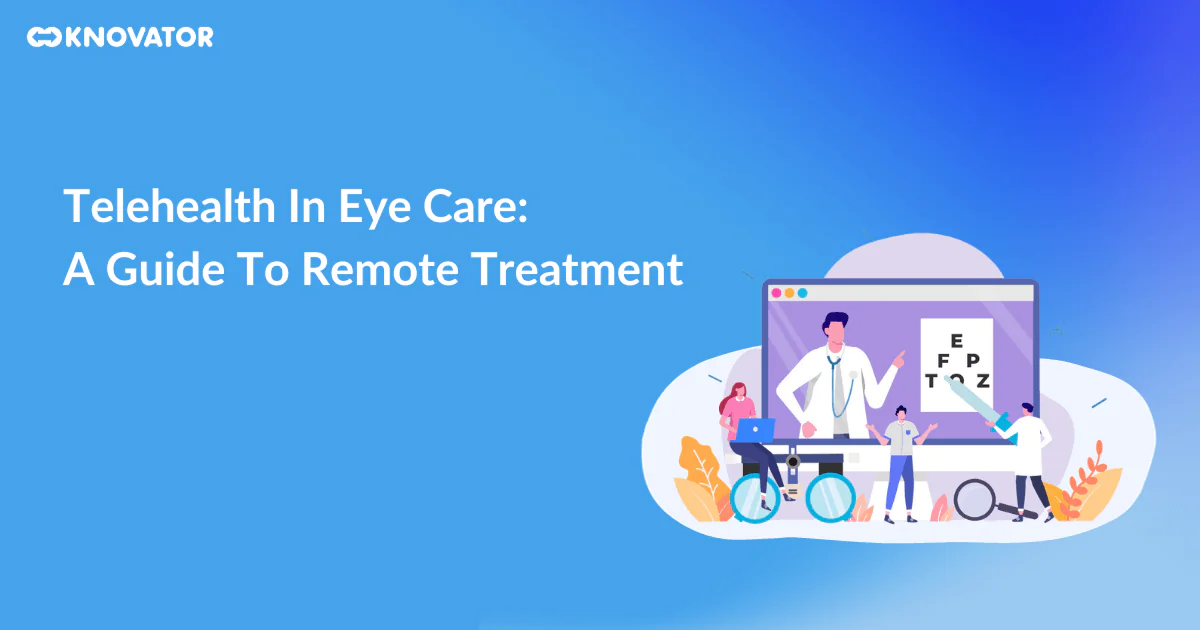Every year, millions of healthcare data transactions occur, underscoring the vital role of HIPAA-compliant software. In 2021 alone, the healthcare industry faced 599 breaches, affecting more than 26 million individuals.
But what if there was a way to reduce this risk significantly? Enter HIPAA-compliant software, the unsung hero in our healthcare system, playing an indispensable role in safeguarding patients’ sensitive information.
In this blog, we will explore what HIPAA-compliant software is and how to choose the right one. We’ve also compiled a list of the top 9 HIPAA-compliant software solutions you should consider for your healthcare practice.
Let’s dive right in.
What is HIPAA-Compliant Software?
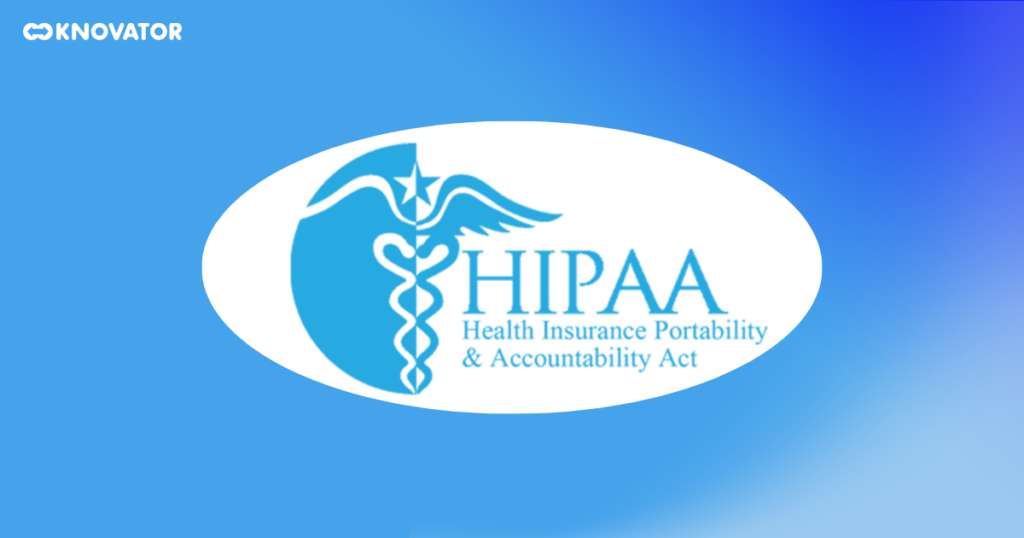 HIPAA-compliant software adheres to the regulations set by the Health Insurance Portability and Accountability Act (HIPAA). This software protects patient health information from being disclosed without permission or knowledge.
HIPAA-compliant software adheres to the regulations set by the Health Insurance Portability and Accountability Act (HIPAA). This software protects patient health information from being disclosed without permission or knowledge.
HIPAA-compliant software must meet several requirements, including:
- Data encryption
- Access controls
- Audit trails
- Physical security
- Business associate agreements
HIPAA-compliant software is not just about the software itself. It is also about ensuring that your entire operation, from the office to the digital realm, is secure and respectful of patient privacy. This means having policies and procedures to protect patient health information PHI and training your staff to handle PHI securely.
How to Choose a HIPAA-Compliant Software Solution?
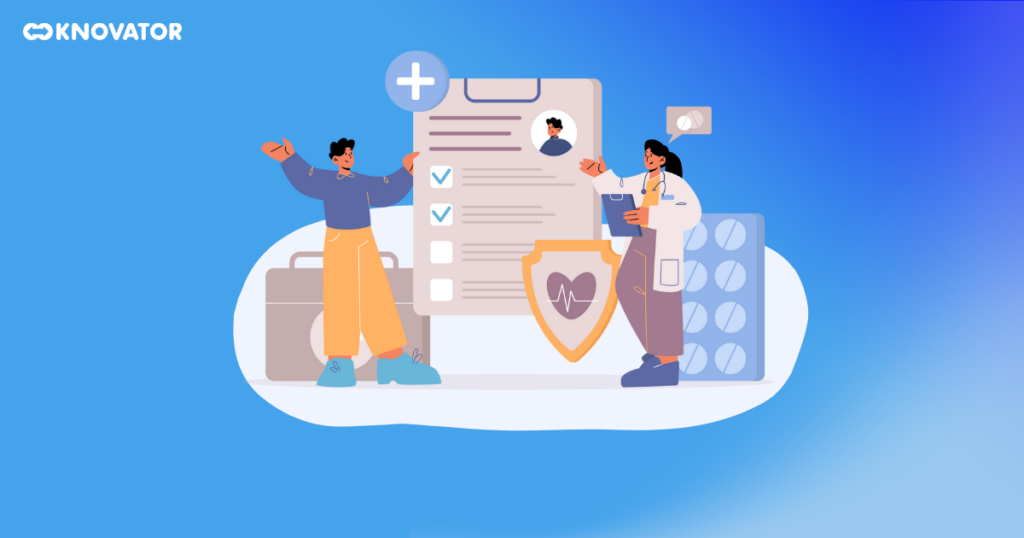 When selecting HIPAA-compliant software, it’s crucial to consider its security features, scalability, and how well it integrates with your existing systems.
When selecting HIPAA-compliant software, it’s crucial to consider its security features, scalability, and how well it integrates with your existing systems.
It’s essential to consider the following options:
- Security features
The software should use encryption to protect data and offer user-friendly interfaces.
- Scalability
The software should be able to grow with your organization.
- Integration
The software should integrate well with your existing systems.
- Customer support
The software provider should offer top-notch customer support.
Remember, compliance is a journey, not a one-time event. Your software should help you maintain compliance as your organization grows and changes.
The 9 Best HIPAA-Compliant Software
Finding the right software for your health organization can be a daunting task. To help you get started, here is the list of the top 9 software solutions that excel in ensuring HIPAA compliance.
1. Salesforce Health Cloud
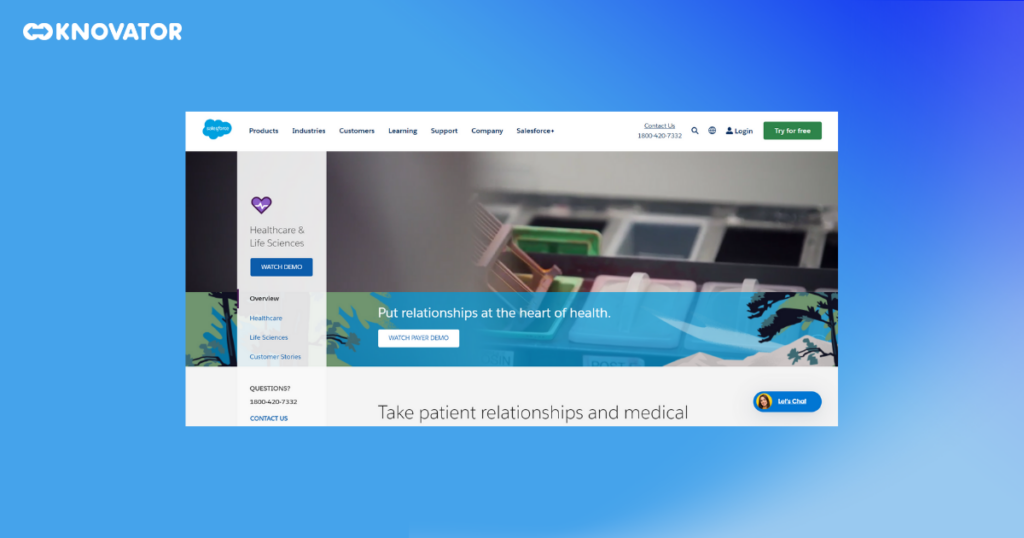 Salesforce Health Cloud is a leading HIPAA-compliant software that ensures secure patient data management. This platform centralizes patient data, providing a single view of each patient’s health history. It helps you deliver personalized, informed care with its robust features. These features include care planning, patient engagement tools, and analytics. Further, Salesforce Health Cloud complies with HIPAA regulations, protecting sensitive health information and maintaining privacy and security.
Salesforce Health Cloud is a leading HIPAA-compliant software that ensures secure patient data management. This platform centralizes patient data, providing a single view of each patient’s health history. It helps you deliver personalized, informed care with its robust features. These features include care planning, patient engagement tools, and analytics. Further, Salesforce Health Cloud complies with HIPAA regulations, protecting sensitive health information and maintaining privacy and security.
Pros:
- Cloud-based platform with high availability
- Scalable and customizable
- Integrates with other Salesforce products
- Provides a 360 degree view of patient data
Cons:
- Can be expensive
- Requires a significant upfront investment
- Can be complex to implement and use
- Not all features are available in all regions
Pricing – Starts at $300/user per month when paid annually.
2. Updox
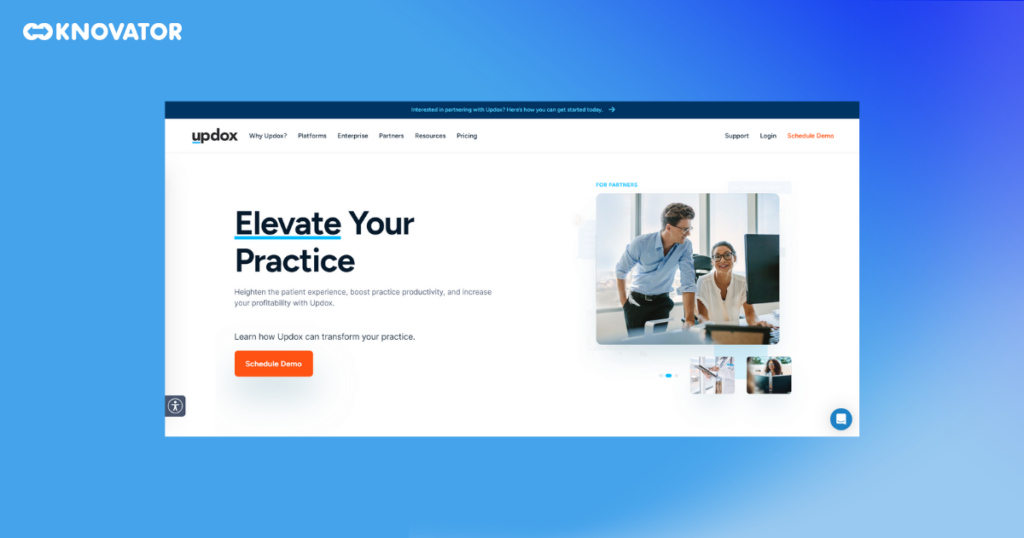 Updox is a complete, HIPAA-compliant healthcare communication platform. It helps physicians, pharmacists, and other healthcare providers boost their efficiency while maintaining the security of patients. This HIPAA-compliant software combines all your communication tools in one place, making it easier for providers to collaborate and engage with patients. From video chat to secure text messaging, Updox has you covered.
Updox is a complete, HIPAA-compliant healthcare communication platform. It helps physicians, pharmacists, and other healthcare providers boost their efficiency while maintaining the security of patients. This HIPAA-compliant software combines all your communication tools in one place, making it easier for providers to collaborate and engage with patients. From video chat to secure text messaging, Updox has you covered.
Pros:
- Secure faxing and texting
- Telehealth capabilities
- Easy to use
- Integration with Practice Fusion
Cons:
- Can be expensive
- Setup can be complex
- Some features are limited
- Not all EMRs are compatible
Pricing – The pro version costs $99 per user per month.
3. Weave
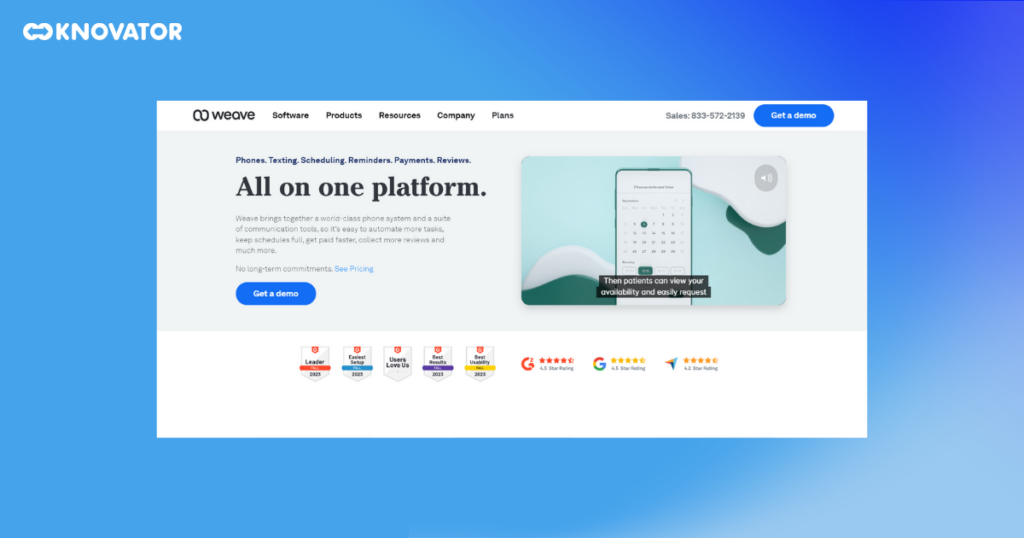 Weave is a unique patient communication platform that is fully HIPAA-compliant. Effective communication allows healthcare practices to build stronger relationships with their patients. Moreover, it offers features such as text messaging, automated reminders, and a patient portal that maintains the integrity of sensitive health information.
Weave is a unique patient communication platform that is fully HIPAA-compliant. Effective communication allows healthcare practices to build stronger relationships with their patients. Moreover, it offers features such as text messaging, automated reminders, and a patient portal that maintains the integrity of sensitive health information.
Pros:
- Reduces phone expenses
- Improves staff efficiency
- Increases patient communication
- Easy to use
- Integrates with EMR
Cons:
- Can be buggy
- Customer service can be lacking
- Limited email marketing platform
- Not as feature-rich as some other software
Pricing – The basic plan starts at $25/ user per month.
4. OhMD
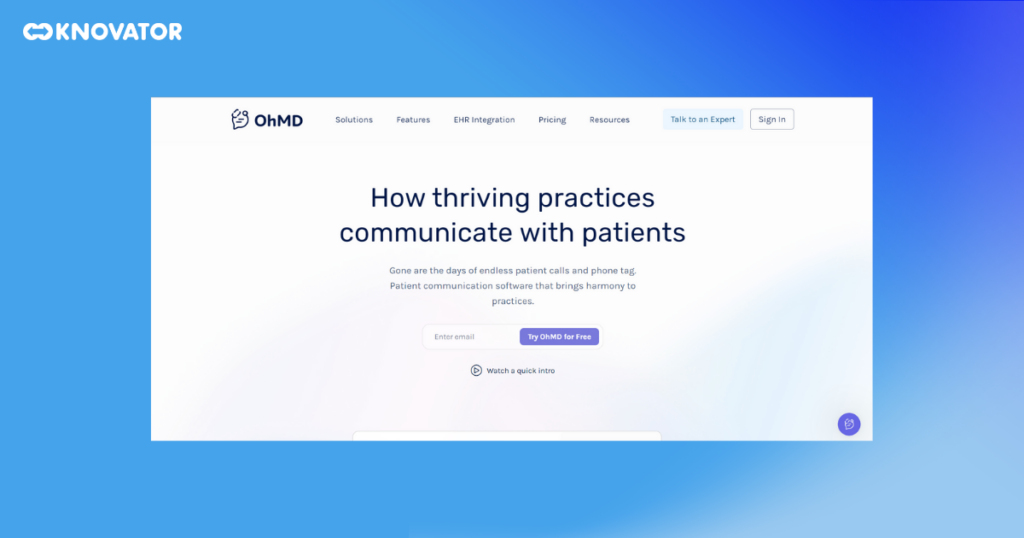 OhMD is a secure platform that enables healthcare workers and patients to communicate quickly and efficiently while complying with HIPAA regulations. With OhMD, you can send encrypted messages directly to patient apps without requiring them to download additional software. Additionally, patients can initiate video appointments with a single SMS link. OhMD also offers the ability to call patients, engage with them through live chat, and automate communication workflows.
OhMD is a secure platform that enables healthcare workers and patients to communicate quickly and efficiently while complying with HIPAA regulations. With OhMD, you can send encrypted messages directly to patient apps without requiring them to download additional software. Additionally, patients can initiate video appointments with a single SMS link. OhMD also offers the ability to call patients, engage with them through live chat, and automate communication workflows.
Pros:
- Encrypted messages
- Video visits
- Automated workflows
- Broadcast messages
- Share forms and images
Cons:
- Not all features are available in all countries
- Some features may require additional training
- Customer support may not be available 24/7
Pricing -The Basic plan is free for 15 staff members, while the Plus plan costs $7 per monthly user.
5. TrueVault
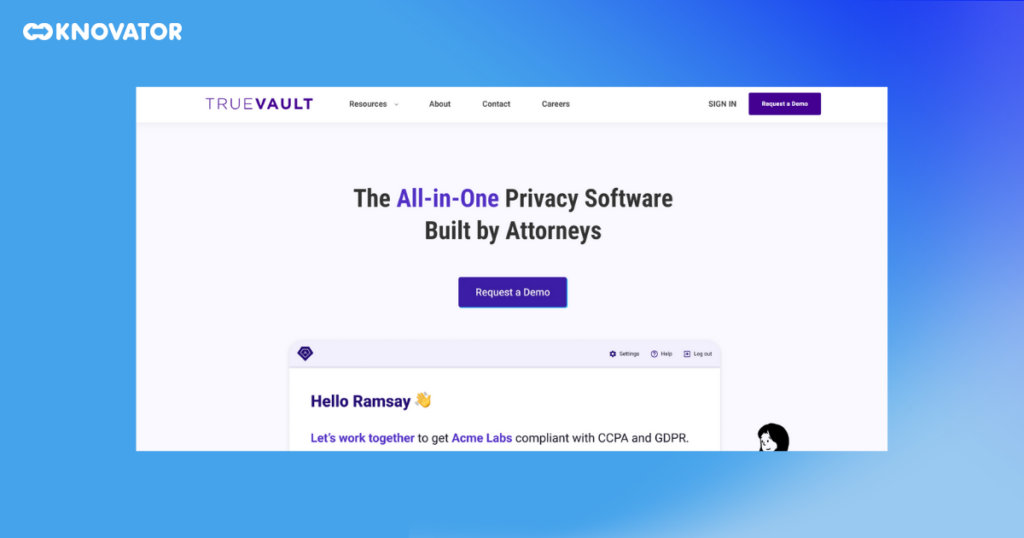 TrueVault provides a secure, scalable, HIPAA-compliant software solution for healthcare organizations. It offers data protection services, including secure data storage and transfer, allowing organizations to confidently handle sensitive health information. TrueVault’s commitment to HIPAA compliance makes it a reliable choice for healthcare data security.
TrueVault provides a secure, scalable, HIPAA-compliant software solution for healthcare organizations. It offers data protection services, including secure data storage and transfer, allowing organizations to confidently handle sensitive health information. TrueVault’s commitment to HIPAA compliance makes it a reliable choice for healthcare data security.
Pros:
- Built for developers
- Simple RESTful API
- BAA + insurance
- Saves hundreds of dev hours
Cons:
- Can be expensive
- Not as user-friendly as some other solutions
- Limited storage capacity
Pricing – Starts at $1500/user per month.
6. CareCloud
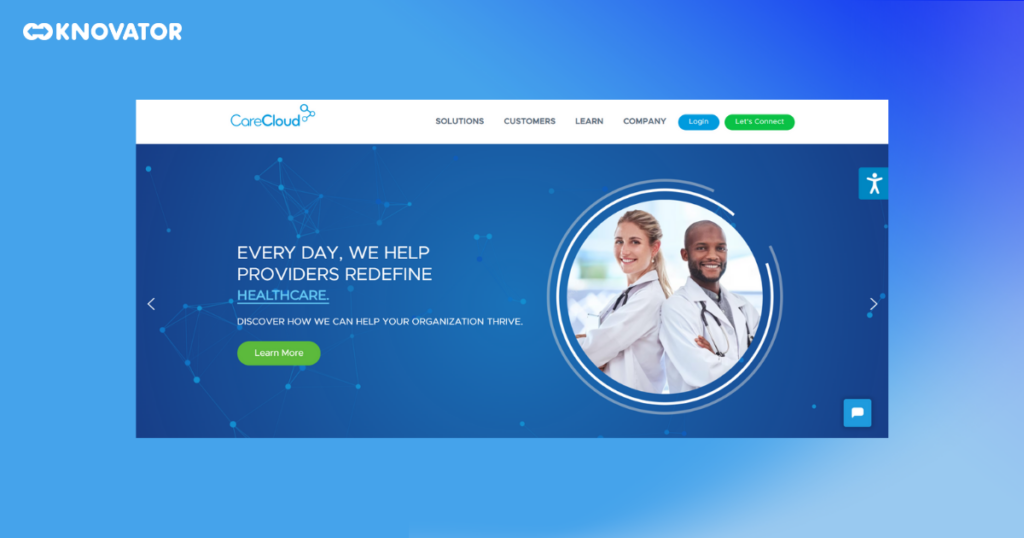 CareCloud is a HIPAA-certified software that provides a comprehensive suite of solutions for healthcare management. It offers services ranging from electronic health records (EHR) and practice management to patient experience and financial management. With CareCloud, you can streamline your operations, improve patient engagement, and enhance clinical care.
CareCloud is a HIPAA-certified software that provides a comprehensive suite of solutions for healthcare management. It offers services ranging from electronic health records (EHR) and practice management to patient experience and financial management. With CareCloud, you can streamline your operations, improve patient engagement, and enhance clinical care.
Pros:
- Easy to use and navigate
- Robust reporting features
- Saves time and money
- Cloud-based, so accessible from anywhere
- Good customer support
Cons:
- Can be expensive
- Some features are not customizable
- Connectivity issues can sometimes occur
- Reporting can be complex
- Not as many features as some other EHR systems
Pricing – Starts at $628 per provider per month.
7. Luma Health
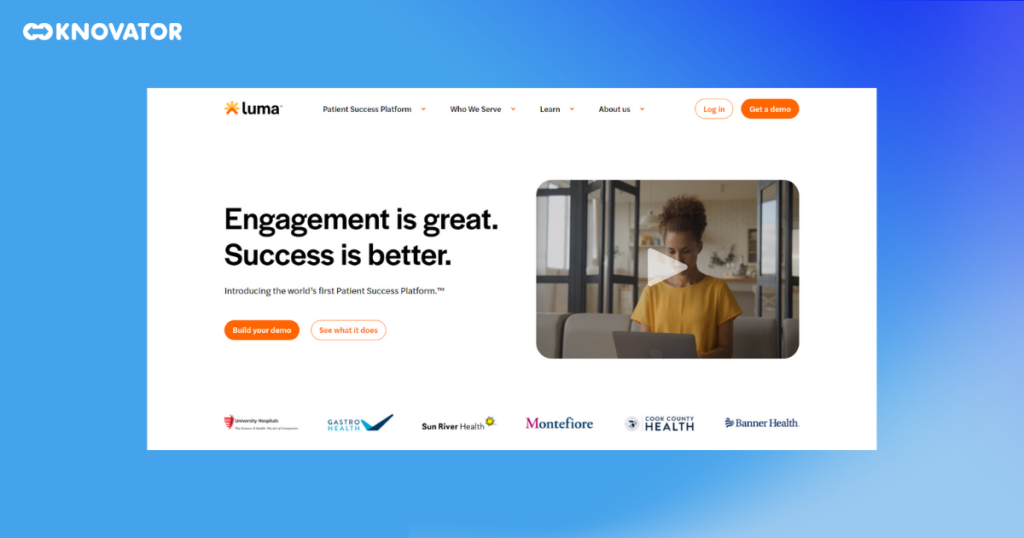 Luma is a Patient Success Platform that streamlines a patient’s healthcare journeys by unifying and automating their access & operational, clinical, and financial processes. It is compatible with over 80 EHRs, providing staff and clinicians with a comprehensive view of the patient’s information without manual outreach. Luma’s implementation has resulted in a 37% increase in referred patients within the first six months and a 39% average revenue increase for healthcare organizations. And of course, it is HIPPA compliant.
Luma is a Patient Success Platform that streamlines a patient’s healthcare journeys by unifying and automating their access & operational, clinical, and financial processes. It is compatible with over 80 EHRs, providing staff and clinicians with a comprehensive view of the patient’s information without manual outreach. Luma’s implementation has resulted in a 37% increase in referred patients within the first six months and a 39% average revenue increase for healthcare organizations. And of course, it is HIPPA compliant.
Pros:
- Easy-to-use patient scheduling and communication platform
- Reduces no-show rates
- Improves patient engagement
- Provides detailed reporting insights
- Integrates with over 80 EHR systems
Cons:
- Can be expensive for small practices
- Some features are not as flexible as desired
- System can lag sometimes
- Not all providers are supported
Pricing – Pricing is not publicly available but there’s a free trial.
8. SimplePractice
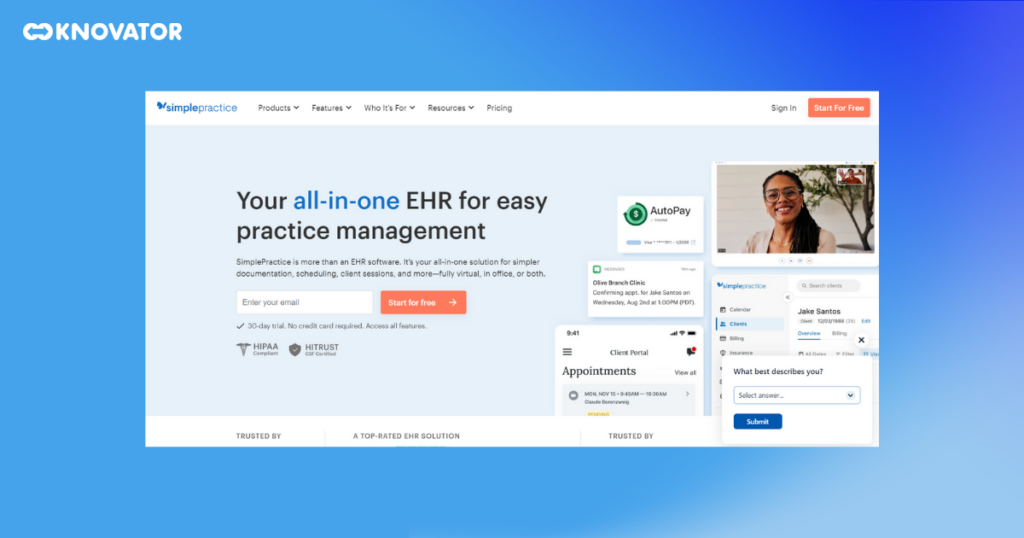 SimplePractice is a patient management system specifically designed for therapists, counselors, and mental health workers. This system is great at automating repetitive tasks, simplifying documentation, and organizing client forms, appointments, and treatment plans. Its user-friendly design makes it easy for even those unfamiliar with patient management systems to start.
SimplePractice is a patient management system specifically designed for therapists, counselors, and mental health workers. This system is great at automating repetitive tasks, simplifying documentation, and organizing client forms, appointments, and treatment plans. Its user-friendly design makes it easy for even those unfamiliar with patient management systems to start.
Pros:
- Easy to use
- User-friendly interface
- Affordable pricing
- Wide range of features
- Excellent customer support
Cons:
- Free trial is too short
- Some features are not as intuitive as they could be
- Can be slow at times
- Not as customizable as some other EHR software
- Lacks some advanced features
Pricing:
- Starter Plan: $29/month
- Essential Plan: $69/month
- Plus Plan: $99/month
9. Zoom for Healthcare
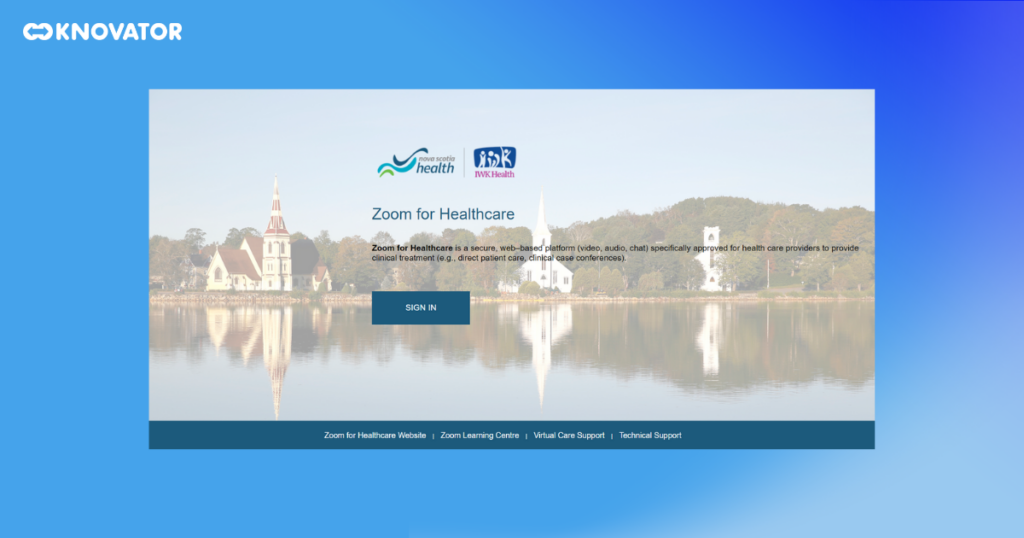 As a cloud phone system, Zoom Phone comes with various useful features like call forwarding, blocking, recording, delegation, holding, and more. It also supports integration with business applications like Salesforce and works seamlessly with various devices. Plus, administrators can easily manage and monitor the phone system from anywhere through the Zoom portal.
As a cloud phone system, Zoom Phone comes with various useful features like call forwarding, blocking, recording, delegation, holding, and more. It also supports integration with business applications like Salesforce and works seamlessly with various devices. Plus, administrators can easily manage and monitor the phone system from anywhere through the Zoom portal.
Pros:
- High-quality audio and video
- Easy to use
- Affordable pricing
- Wide range of features
- Integration with other Zoom products
Cons:
- Limited customer support options
- Some security concerns
- Not as customizable as some other VoIP providers
- Can be challenging to switch from another phone system
Pricing
- Pay as you go: $1.20 per minute for outbound calls.
- Unlimited regional calling: $180 per year per user.
- Metered outbound calling: $0.96 per minute for outbound calls.
- Unlimited calling to 40+ countries: $240 per year per user.
Get started With HIPAA-Compliant Software For Your Health Organizations
The software solutions listed above are HIPAA-compliant, but organizations must still conduct due diligence before implementing them. Not all software is created equal, and some solutions may be more suited to your specific needs than others.
It is also essential to ensure that any software you choose to implement fully meets the requirements of HIPAA. This means that the software must protect the confidentiality and availability of patient health information (PHI). You can do this by reviewing the software’s security features and by having the software vendor sign a business associate agreement (BAA).
Once you have chosen a solution, it is important to monitor its effectiveness regularly. HIPAA compliance is a continuous process, and your needs may change over time. By regularly monitoring your solution, you can ensure that it is still meeting your needs and that it is still compliant with HIPAA.

